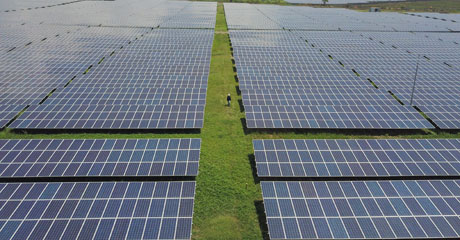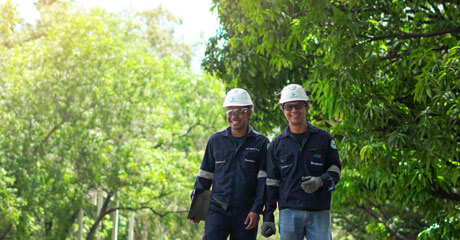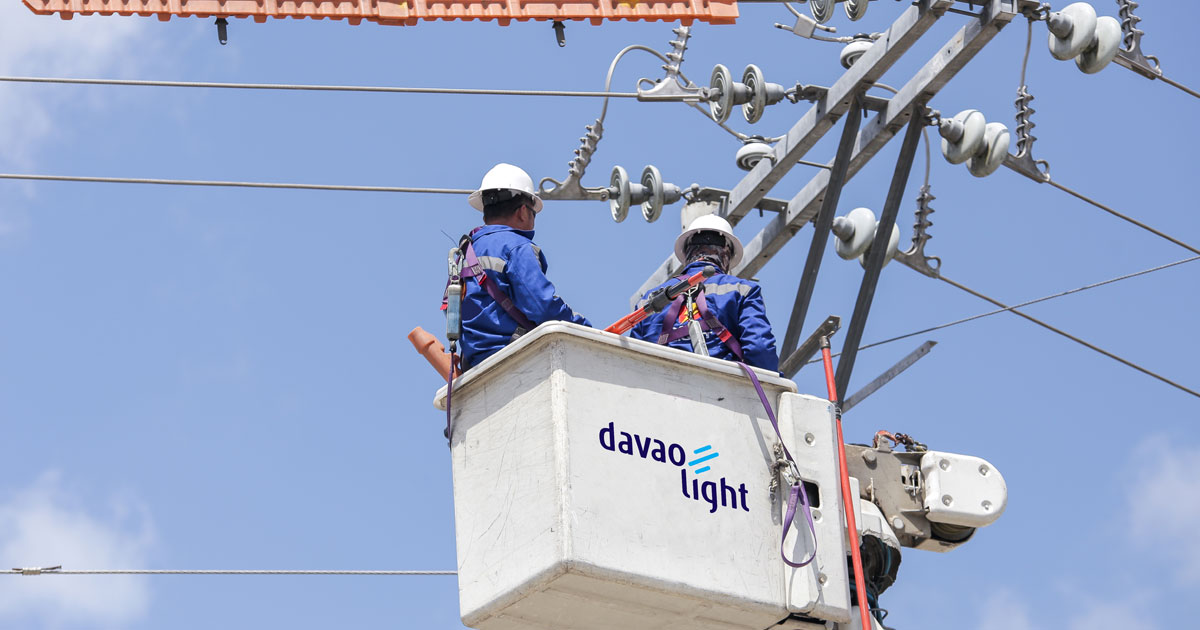Who We Are
AboitizPower is the Philippines’ leading provider of renewable energy, advancing business and communities towards A Better Future.

AboitizPower is the Philippines’ leading provider of renewable energy, advancing business and communities towards A Better Future.

AboitizPower champions sustainability initiatives and ventures that help make the world a better place not only for people living today but for generations to come.

AboitizPower upholds the highest ethical standards, safeguarding the integrity of our initiatives and developments as a business enterprise and a partner for environmental protection.

View our shareholder relations and investment reports and find out how we prioritize addressing the triple bottom line of people, planet, and profit.

Stay updated on the latest stories and developments about AboitizPower.

A Better Future and career await you at AboitizPower. Browse through our job vacancies and join our ever-growing family today!
May 09, 2024

The power industry’s shift to a future with cleaner and better generation technologies require investments in “transition” technologies today to ensure energy security and affordability for present and future generations, an Aboitiz Power Corporation (AboitizPower) official said.
In particular, liquified natural gas (LNG) is being regarded as a transition fuel to support the entry of more variable renewable energy (RE) and to give time for emerging technologies to be commercially viable.
“New and emerging technologies — energy storage, small modular nuclear reactors (SMRs), and hydrogen — are still expensive today. But our need for energy continues year-on-year and we have retiring old plants, so we really need a lot of new capacity,” said AboitizPower Head of Energy Transition Projects Felino Bernardo. “We will need more LNG-to-power projects, RE capacity, and, at some point in time, we believe that these new and emerging technologies will come in to further accelerate the transition to more decarbonized sources of electricity.”
According to the Philippine Electricity Market Corporation, 51% of the country’s registered capacity is from power plants that are more than 20 years old.
Amidst the impending depletion of the Malampaya gas field by 2027 and the moratorium on greenfield coal-fired power plants, LNG-to-power is considered a cleaner baseload alternative to coal, as it is less greenhouse gas intensive. Gas turbines also cycle more quickly, providing more flexibility when addressing the intermittencies of solar and wind power.
“We need baseload support for RE. It’s not a competition to RE, it’s an enabler for RE to grow,” Bernardo explained.
“Talking about what’s on the other side of the bridge, it’s the new technologies that are coming in. Unfortunately, we need to continue to lengthen and strengthen the bridge because there are still uncertainties on when they’re going to be available and become more affordable,” he added.
The AboitizPower official also maintained that there is no one-size-fits-all solution to an evolving and dynamic process like the energy transition, emphasizing on the necessity of diversifying the energy mix, especially to minimize reliance on one single energy source.
“We’re approaching this with our balanced portfolio strategy. We want affordable electricity that can be provided by coal plants. We want a bridge technology that can be secured by LNG. And we are pursuing our RE targets to support decarbonization. All of these are needed for us to be able to deliver a balanced outcome for the energy needs of the country,” Bernardo said.
The Department of Energy (DOE) projected peak electricity demand to increase annually by 6.6% from 2020 to 2040. This coincides with the Philippine government’s economic growth targets of 6-7% for 2024, 6.5-7.5% for 2025, and 6.5-8% for 2026 to 2028.
In 2022, the primary energy supply mix comprised over 50% net imported coal and oil and 49% indigenous energy mostly from geothermal, biomass, coal, natural gas, and hydro.
Under the Clean Energy Scenario of the Philippine Energy Plan, it was also forecasted that 50% of gross generation in 2040 will eventually come from indigenous renewable energy sources and 26% will be from LNG.
“LNG is something that we can access. Southeast Asia and North Asia are among the biggest buyers of LNG. A lot of LNG is going this way to our market, so we can access that commodity for energy security,” Bernardo said.
The DOE also said that a capacity of 1,200 megawatts from nuclear power is targeted to take part in the Philippine power mix by 2032.
“With respect to micro modular reactors, it can address specific market needs — powering decentralized grids, data centers, and providing process heat for the industry. For medium-sized SMRs, at 300 megawatts, it’s a good source of baseload energy — dispatchable, safe, and carbon free,” Bernardo commented. “But we are still a long way from seeing the first-of-a-kind (FOAK) installation and in developing human capability and the supply chain.”
Taking into account the inherent costs and tradeoffs in the energy transition, Bernardo reminded fellow industry players to be very deliberate in their decisions as it will affect the energy security and affordability of present and future generations.
“What does it mean to be energy secure? Simply put, it’s having electricity every time at the right cost and the least harm,” he maintained.

As one of the Philippines’ largest power producers, we help fill the nation’s growing energy needs by providing secure and affordable access to sustainable power across the country.
Learn more about our businesses
AboitizPower champions sustainability initiatives and ventures that help make the world a better place not only for people living today but for generations to come.
View our sustainability initiatives
View our shareholder relations and investment reports and find out how we prioritize addressing the triple bottom line of people, planet, and profit.
Visit our investor relationsWe use cookies to personalize content and ads, which enables us to analyze our traffic.
If you continue
to use this website, you consent to the use of our cookies.
Find out more here.